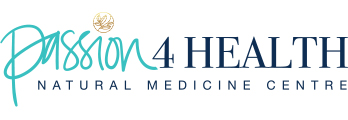Combatting Fatty Liver Disease – Nutritional Pointers
The liver is one of the most amazing organs in the human body. Often referred to as the body’s “Project Manager” it is responsible for overseeing the bodies absorption and storage of nutrients and minerals as well as being a key organ in detoxifying the vast number of toxic chemicals that we subject our bodies to. With this in mind it great that the liver has been created with the ability to regenerate itself.
The choices we make in our lifestyle and diet can improve the performance of this miraculous organ or increase the stress. Studies undertaken on animals have shown that what and how we eat directly impacts the function of the liver. The key indicators of liver stress include allergies, digestive disorders, low energy level and an inability to detoxify harmful substances.
One of the main conditions affecting the liver today is non-alcoholic fatty liver disease or NAFLD. While a fatty liver is viewed by many as a condition affecting alcoholics, other key risk factors for NAFLD include type II diabetes, being overweight, exposure to toxins and improper diet. In fact in one Japanese study it was found the incidence rate of NON ALCOHOLIC fatty liver disease was 21.8%. This shows the importance of caring properly for our liver.
Medically a fatty liver is typically diagnosed by a combination blood tests for liver enzyme function and liver ultrasound. From a natural medicine perspective we utilise live blood analysis specifically looking for deformities of red blood cells and excessive number and duration of fat cells in the blood after eating. This can allow us to see signs of liver stress and liver dysfunction much earlier than measuring changes in liver enzyme levels.
There are a number of important steps we can take to improve our liver function and boost our overall health.
The proper spacing of meals and portion sizes is very important. Overeating is one of the most common causes of liver dysfunction due to stress and fatigue. Our liver plays a key role in both the digestion and absorption of nutrients and the detoxification of chemicals from our food making it a busy organ whenever we sit down at the dinner table.
When eating, match food intake to activity levels and try to consume only three meals per day with four to five hours between meals. It is also important to review how much we eat at each meal. There is a tendency to eat for the work we have just performed, rather than eat for the work we are yet to perform. Swapping our biggest meal to the start of the day and lightest meal to the end of the day can allow the liver and digestive organs to enjoy a rest overnight as well. Not only will this benefit the liver, but this simple change can be highly beneficial to the waist line.
By increasing the amount of organic and non-processed food consumed in our diets we can further reduce the detoxification workload on the liver. This does not just come from the toxins used in the agricultural process, but also other chemicals used as preservatives, flavours or colouring. Remember the more man has touched it the less likely we need to have it in our mouth and in our bodies.
Undertaking meal planning to ensure a good mix of proteins, fats and complex carbohydrates delivered across the day and from the right sources is very important. Try to gain most of your protein requirement from lean protein sources including organic, lean meat, deep sea fish and beans or legumes and increase the amount of raw vegetables, either juiced or eaten. Dietary fats should be obtained from cold pressed olive oil and coconut oil and used as salad dressings rather than in cooking.
A diet that eliminates stress on the liver is one of the key ways of protecting from and reversing liver stress. Favour complex carbohydrates like whole grains and vegetables over simple carbohydrates, like white flour and sugar. Simple carbohydrates and the fats found in junk foods are some of the major food based liver stressors.
A number of herbal supplements have been traditionally used in repairing the liver. These include burdock root, dandelion and red clover to clean the bloodstream combined with milk thistle extract to more specifically target the liver.
Where liver damage is suspected, many people have found a short two day fast beneficial in helping the liver catch up with toxic buildup and regenerate. During this fast consume fresh, organic vegetable juices in place of each meal and drink as much water or herbal tea as possible. On the second day of the fast it is important to introduce a good quality protein supplement such as a pea and rice protein powder. This will help to bind up the toxins that the liver is eliminating and expel as well as providing sufficient protein for rebuilding.
While modern medicine may not have many options in the treatment and correction of a damaged fatty liver there are good news for those willing to tackle this using nutritional and complementary approaches. To design a liver cleansing program specific for your requirements contact our naturopath on 07 3800 1993 or info@www.passion4health.com.au.
Passion4Health is a wellness clinic located in Browns Plains, Brisbane. At Passion4Health we focus on management and maintenance of optimum health through an integrated lifestyle approach.
Passion4Health provide diet and nutritional advice, massage, lymphatic drainage, iridology and live blood analysis.
Find out how you can reduce chronic disease and maintain optimum health by calling us now on 07 3800 1993.
